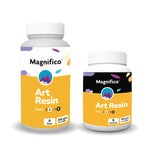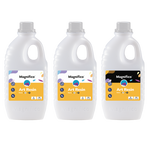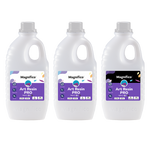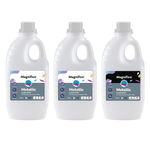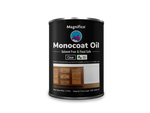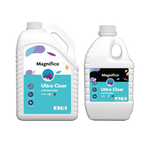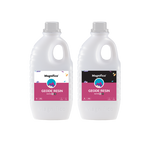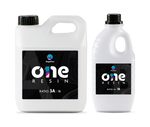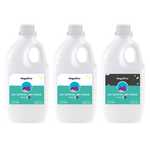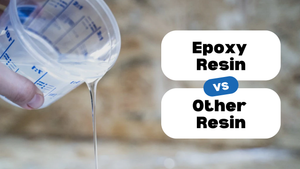Resins come in different forms, and each type has its unique properties and uses. Epoxy resin is one of the most popular, but how does it compare to other types of resin like polyester or polyurethane? Let’s explore the differences and help you choose the right resin for your projects.
- Epoxy Resin
- Strength and Durability: Epoxy resin is known for its high strength, durability, and excellent bonding properties. It's resistant to water, chemicals, and heat, making it ideal for a wide range of applications, from art projects to industrial uses.
- Ease of Use: Epoxy is relatively easy to mix and use, and it cures without needing external heat. It offers a smooth, glossy finish, making it a favorite for jewelry, table tops, and coatings.
- Curing Time: Epoxy usually has a longer curing time compared to other resins, which gives you more working time but can take up to 24–72 hours to fully cure.
- Polyester Resin
- Cost: Polyester resin is often cheaper than epoxy, making it a popular choice for large-scale projects like boat building and car repairs.
- Strength: While strong, it is not as durable or adhesive as epoxy. It can crack or become brittle over time, especially when exposed to the elements.
- Smell and Toxicity: Polyester resin has a strong, unpleasant odor due to the styrene content, and it can be more toxic to work with. Proper ventilation is required.
- Curing Time: It cures faster than epoxy resin, often within 12 hours, but working time is shorter.
- Polyurethane Resin
- Flexibility: Polyurethane resin is more flexible and resistant to impact than epoxy, making it ideal for applications where movement or bending occurs, like in flooring or flexible molds.
- Water Resistance: It’s highly resistant to moisture, making it a great choice for outdoor use and water-related applications.
- Curing Time: Polyurethane resin cures faster than both epoxy and polyester, with some products taking only a few minutes to harden.
- Durability: While strong, polyurethane resin is generally less adhesive than epoxy, so it may not bond as well to certain surfaces.
- UV Resistance
- Epoxy Resin: While epoxy resin is strong, it can yellow when exposed to UV light for extended periods unless UV stabilizers are added.
- Polyester and Polyurethane: These resins generally have better natural UV resistance, making them more suitable for outdoor use.
- Applications
- Epoxy Resin: Used for art projects, river tables, jewelry, and industrial applications like adhesives, coatings, and electronics.
- Polyester Resin: Common in automotive repairs, boat construction, and fiberglass work.
- Polyurethane Resin: Ideal for flexible molds, coatings, and waterproofing.
Conclusion
Each resin type has its strengths and weaknesses. Epoxy resin is the go-to for projects requiring strong adhesion, durability, and a glossy finish, though it takes longer to cure. Polyester resin is a budget-friendly option for large projects but lacks the long-term strength of epoxy. Polyurethane resin is great for flexible and water-resistant applications but may not bond as well as epoxy. Choosing the right resin depends on your specific project needs and desired outcome.


